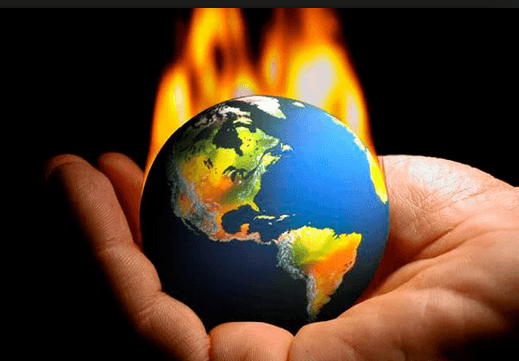Africa Climate Talks in Addis Ababa considers continent’s future
 Africa has long been known to contribute less to climate change, but remains one of the continents that are most vulnerable to the effects of the phenomena. And while it will be the most impacted continent, it also has the least capacity to respond.
Africa has long been known to contribute less to climate change, but remains one of the continents that are most vulnerable to the effects of the phenomena. And while it will be the most impacted continent, it also has the least capacity to respond.
This week therefore, a two-day meeting is being held in the Ethiopian capital, Addis Ababa to deliberate over Africa’s appropriate response to the problems.
Organised by the African Climate Policy Centre (ACPC) of the Economic Commission for Africa (ECA) with the Center for Environmental Science of the University of Addis Ababa, the African Climate Talks (ACT!-II) holding on March 22 and 23, 2018 is a follow-up to the inaugural ACT! event held September 3-5, 2015 in Dar es Salaam, United Republic of Tanzania.
This first forum enabled African stakeholders to debate the continent’s important climate issues prior to the Conference of the Parties to the United Nations Framework Convention on Climate Change in Paris (COP21), which took place from 30 November to 12 December 2015.
The second ACT! proposes to introduce a critical dimension to the Talanoa Dialogue by interrogating the larger contextual issues that are typically silent in the United Nations Framework Convention on Climate Change (UNFCCC) process, the ECA says.
The Talanoa Dialogue is a mandated process requested by the Parties to take stock of the collective efforts in relation to progress towards the long-term goal of the Paris Agreement and to inform preparation of nationally determined contributions (NDCs). The NDCs was launched at COP 23 in Bonn, Germany.
“In this broad context, ACT!-II will stimulate debate over a range of topics that affect the implementation of the nationally determined contributions in Africa, and create a space for identifying alternative pathways to the resolution of the climate (and development) crises facing the continent. ACT!-II provides a platform to discuss and analyse the outcomes of COP23 in Bonn, Germany, and side events held during the 30th Ordinary Session of the Assembly of Heads of State and Government of the African Union from 22 to 29 January 2018,” it adds.
Discussants raised questions about Africa’s position in all the Agreements such as the Kyoto Protocol and Paris Agreement.
What came to the fore among others is the inability of African countries to access climate funds. It appears most countries do not have the capacity to design proposals to access the funds.
Citing the facts that the world’s governments reached the Paris Accord in 2015 at COP 21, the organisers reiterate that the agreement commits to specific targets for reducing greenhouse gas emissions.
They also note that the Paris Agreement has been hailed as a breakthrough moment in the trajectory of the UNFCCC framework, capping emissions not more than 2 degrees Celsius since the 19th century onset of the industrial revolution.
While 2 degrees warming has been considered the upper limit of ‘safe’ warming, the Paris Accord further seeks, if possible, to aim for even lower warming target of 1.5 degrees. The 2 degrees target is itself a political limit, with scientific debates still raging over its implications for the various regions (e.g. IPCC Special report. The main mechanism by which nations commit towards achieving the objectives of the Accord are the Nationally Determined Contributions (NDCs), they argued.
“The contradiction is that the goals adopted in the NDCs, are insufficient to achieve the goals of the accord, putting us instead on a course to 3 degrees or higher warming. The solution which has been proposed is to ‘raise the level of ambition’ of the NDCs. In practice, this involves getting individual countries to commit towards more ambitious climate mitigation commitments while also making resources available for adaptation,” they say.
Arguing further that the absence of a legally binding framework to hold countries accountable to their Paris commitments, however, has created doubts about the efficacy of the ratchet up mechanism. For this and other reasons, the Paris Accord is viewed in some critical circles as being incommensurate with the scale of the climate challenge. The intended withdrawal of the US from the accord, apparently in order to protect big business interests in fossil fuels, cements this perception, they add.
The African Climate Talks is therefore proposing to introduce a critical dimension to the Talanoa dialogue by interrogation these larger contextual questions which are typically silent in the UNFCCC process. In this broad context, the ACTS will tease out debates over a range of issues that affect the implementation of the NDCs in Africa, and create a space for the identification of alternative pathways to the resolution of the climate (and development) crises facing the continent.
Among others, the key issues being discussed will include:
The climate crisis • Causes and solutions (Is the Paris Agreement an adequate framework to address the climate crisis?)
- Climate change impacts on development in Africa
Industrialization and leapfrogging, how realistic:
- Fossil fuel reserves in Africa
- Energy debts and investments, stranded assets
- Energy security and sel- sufficiency
- Innovation and technology
By Emmanuel K. Dogbevi, in Addis Ababa, Ethiopia
Copyright ©2018 by Creative Imaginations Publicity
All rights reserved. This news item or any portion thereof may not be reproduced or used in any manner whatsoever without the express written permission of the publisher except for the use of brief quotations in reviews.
